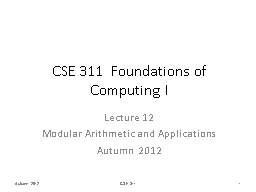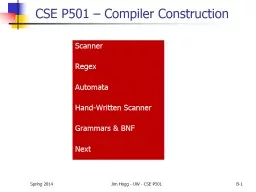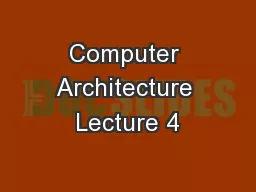PPT-CSE 502: Computer Architecture
Author : scarlett | Published Date : 2023-10-04
OutofOrder Memory Access Dynamic Scheduling Summary Outoforder execution a performance technique Feature I Dynamic scheduling iO OoO Performance piece rearrange
Presentation Embed Code
Download Presentation
Download Presentation The PPT/PDF document "CSE 502: Computer Architecture" is the property of its rightful owner. Permission is granted to download and print the materials on this website for personal, non-commercial use only, and to display it on your personal computer provided you do not modify the materials and that you retain all copyright notices contained in the materials. By downloading content from our website, you accept the terms of this agreement.
CSE 502: Computer Architecture: Transcript
Download Rules Of Document
"CSE 502: Computer Architecture"The content belongs to its owner. You may download and print it for personal use, without modification, and keep all copyright notices. By downloading, you agree to these terms.
Related Documents














